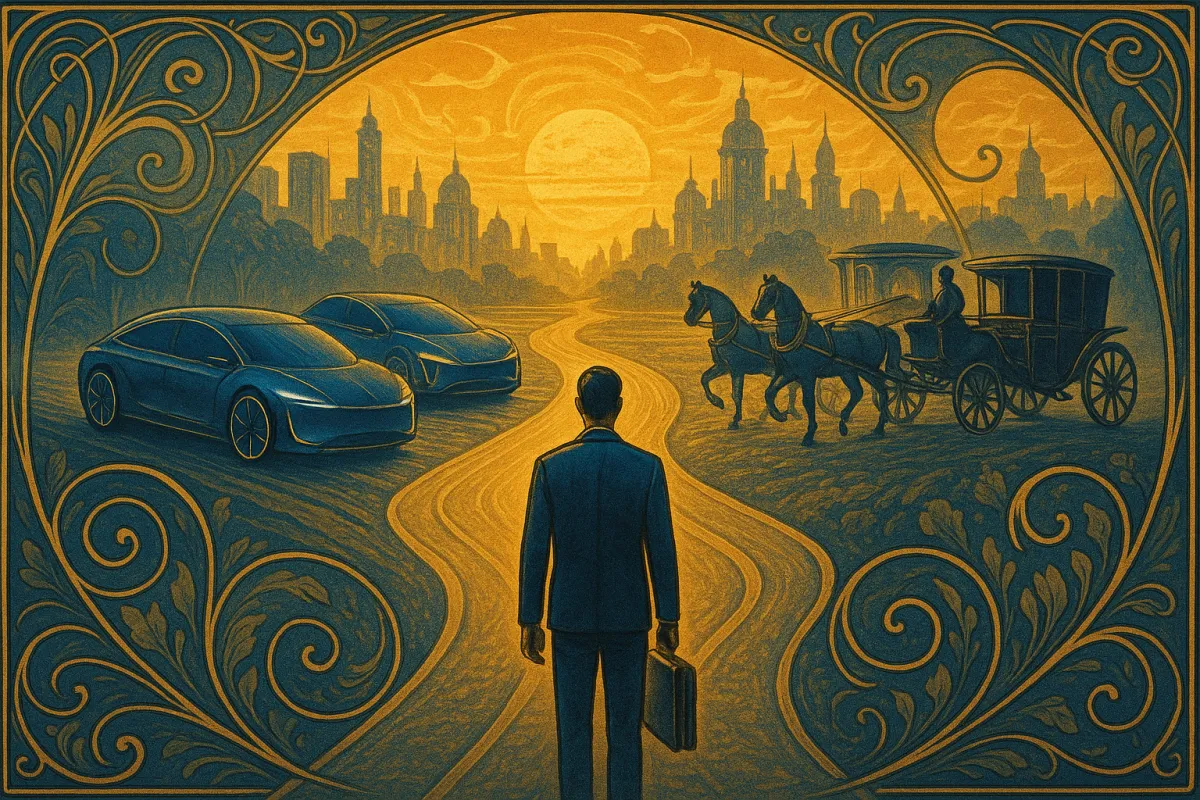
From Demands to Disruption: What Ford’s Insight Teaches Us About AI and Business Transformation
Beyond Faster Horses: How AI Changes What's Possible for Your Business
Have you ever had a quote stick in your mind, refusing to leave until you've fully unpacked its wisdom? That's been happening to me lately with Henry Ford's famous words: "If I had asked people what they wanted, they would have said a faster horse."
This quote keeps running through my head as I dive deeper into AI tools and capabilities. There's something about Ford's insight that perfectly captures the current AI landscape and the massive opportunity it presents for forward-thinking entrepreneurs and business leaders.
The Wisdom in Ford's Words
What makes this quote so powerful is how it captures a fundamental truth about innovation: customers can only imagine improvements to what they already know exists. They couldn't envision automobiles because their frame of reference was limited to horses.
I see the exact same pattern playing out with AI today.
Most business owners I talk with are aware of AI and maybe dabbling with ChatGPT to answer simple questions or draft basic content. But they're essentially asking for "faster horses" — trying to use AI to do the same old tasks slightly more efficiently.
They're missing the true transformation that's possible.
AI's Power Goes Beyond Efficiency
With just a few keyboard clicks, today's AI tools can help us understand our customers' needs more thoroughly and easily than ever before. This kind of customer insight is golden — a critical component of any successful sales strategy.
But the real magic happens when we stop using AI to just do the old things better and start reimagining what's possible:
Instead of just writing faster emails, what if AI helped you create personalized follow-up sequences that adapt based on prospect engagement?
Instead of just analyzing more data, what if AI could predict which leads are most likely to convert before you even reach out?
Instead of just scheduling more efficiently, what if AI could optimize your entire workday to focus on high-value activities that actually grow your business?
The difference between good and great implementation of AI isn't technical expertise — it's vision.
The Opportunity for Visionaries
This general lack of understanding about AI's transformative potential creates an enormous opportunity for visionary business leaders. Those who can see beyond what customers are explicitly asking for will pull ahead dramatically.
I've found that being this kind of visionary doesn't require a technical background. It requires:
Curiosity about what might be possible
Willingness to experiment with new approaches
Strategic thinking about your actual business goals
Empathy for the real needs your customers have (even if they can't articulate them)
Great business leaders have always looked beyond what people say they want to identify what they truly need. Henry Ford didn't build a faster horse — he created an entirely new transportation paradigm that solved the underlying needs in a revolutionary way.
How to Be the Ford of Your Industry
So how do you become the visionary who revolutionizes your industry with AI rather than just making incremental improvements?
Here are some practical starting points:
Question your core processes. Don't ask "How can AI help me do this faster?" Ask "Should we be doing this at all? What outcome are we really seeking?"
Look for customer friction points. Where do your clients struggle, even if they've accepted that struggle as "just how it works"?
Connect with forward-thinkers outside your industry. Cross-pollination of ideas often sparks the most innovative solutions.
Start small but think big. Test focused AI applications that address specific pain points, but keep the larger transformation in mind.
The businesses that will dominate in the coming years won't just be using AI tools — they'll be fundamentally reimagining their entire business model with AI capabilities as the foundation.
My Challenge to You
This week, take one process in your business that hasn't changed much in years. Instead of asking how to make it more efficient, ask: "If we were starting from scratch today with all the AI tools available, would we even do this at all? What would the ideal solution look like?"
The answers might surprise you — and lead to your own "Model T" moment that leaves the competition wondering how they missed the future that was sitting right in front of them.
Are you looking for faster horses, or are you building the future of transportation? I'd love to hear your thoughts and experiences in the comments below or connect with me to discuss how your business can move beyond incremental improvements to true AI-powered transformation.
